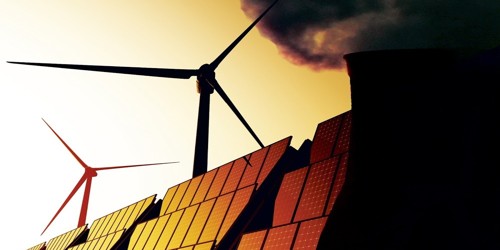Energy – Needs and Sources
The energy needs of the world are unending and ever increasing. Scientifically, energy is defined as the ability to do work We need energy for transport, industry, lighting, warmth, cooking, etc. Without sufficient energy, the airplanes will stop flying, the industry will grind to a halt, cities will be plunged into darkness, in short, the world as we know it will cease to exist. Before going further, it will be necessary to talk briefly on what energy is all about. Energy is the ability to cause changes in matter. It can exist in many different forms.
There are many types of energy sources. Introduction Electricity is generated by the use of energy. Our ancestors used wood and other combustible material for burning in order to generate heat and light. Energy can change from one form to another. There are six forms of energy: mechanical, chemical, electrical, light, thermal, and sound energy. Today we make use of fossil fuel and we harness solar, wind, water, chemical and nuclear energy for powering the many devices that we have invented. Its use in the sector such as industry, commerce, transport, telecommunications, a wide range of agriculture and household services.
Everything on Earth revolves around energy. Whether it involves plants, animals, or humans. Most of these energy sources are non-renewable, that is, they become depleted in time. An example is fossil fuel. Its supply is limited and it is a matter of time before it runs out. Fossil fuels have served as a reliable source of heat for cooking and warmth since the beginning of history. That is why we need to conserve the energy resources we have and search to find an alternate resource. An example of a renewable energy source is wood. Trees can be grown but the process takes a long time.
The use of some of these energy sources causes pollution. The burning of wood and fossil fuel produces smoke and other gases. Coal, natural gas, oil, and nuclear electricity are all associated with significant pollutants or hazardous byproducts. Harnessing energy from nuclear fission produces dangerous by-products that are difficult to manage. By contrast, hydroelectric power, solar energy, and wind energy are examples of non-polluting energy sources. The development of science and civilization is closely linked to the availability of energy in useful forms.
Energy resources are very much important in the context of the economic development of the country. Natural resources are one of the resources that human consumes to generate energy. As the population of the world keeps increasing, there is an urgent need to find and use more renewable and non-polluting energy sources.
















